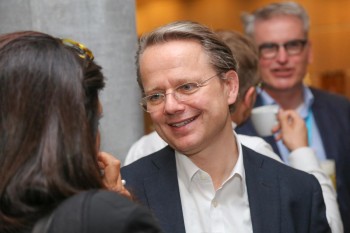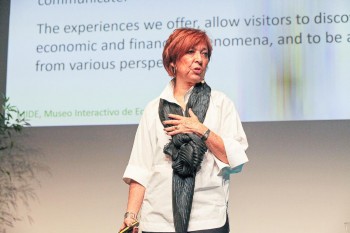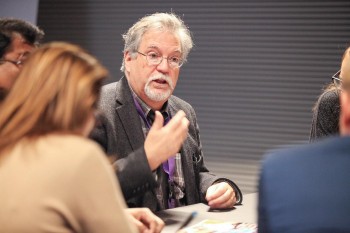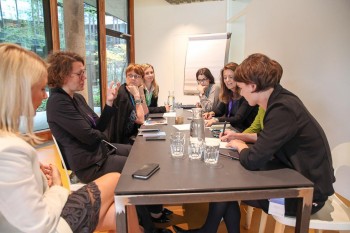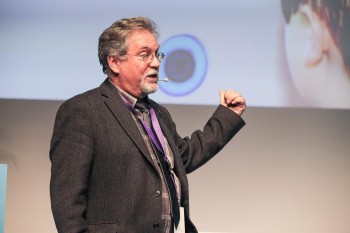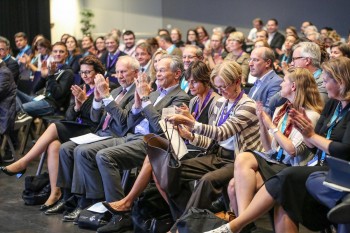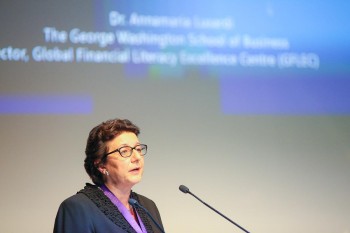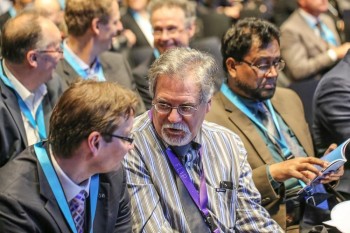Unveiling the Bank of Canada Museum to the World
Well, to a chunk of it anyway. Every year the conference of the International Federation of Finance Museums (IFFM) draws museum directors from five continents to a get-together aimed at sharing best-practices and keeping up with the latest trends in the world of financial museums. Many of the delegates had been following our progress at the Bank of Canada Museum over the past four years, and there was a level of anticipation this year, because they knew I was going to talk to them about our opening and our experience to date.
This year was the Bank’s first opportunity to attend the conference with a museum in fully-operational mode back home, something which gave me the opportunity to step onto the stage as a featured speaker, offering the Bank’s perspective on what our teams accomplished. The presentation was met with enthusiastic interest.
From Paris to Mexico City; Museum Directors Need to Know
Philippe Gineste, Director of CitéCo (Cité de l’Économie et de la Monnaie) in Paris, set to open in 2019, took me aside early on to ask me about the pitfalls and opportunities the Bank of Canada had faced putting together our Museum. His interest was more than passing; his team at CitéCo is gearing up for a full year of trying to get all the myriad things they need done, done. He was happy to know we would offer the benefit of our experience whenever he wanted.
Philip List, Director of the host museum Erste Financial Life Park in Vienna, was happy to compare notes, given that he had just completed a similar museum earlier this year.
Silvia Singer, CEO of the Museo Interactivo de Economía in Mexico City, one of the early inspirations for the new Bank of Canada Museum, told me enthusiastically that she was planning to get to Ottawa as soon as possible to see for herself.
A Conference About Museums’ Place in Economic and Financial Literacy
For the past four years now, the Bank of Canada Museum has been a member of the IFFM, an organization promoting the work of financial and central bank museums from North, Central and South America, Europe, Asia and Africa. The October conference featured numerous presentations and workshops covering different aspects of the members’ work, as well as some lively debates on the state of financial and economic literacy in the world.
The Museum Blog
The Coming of the Toonie
The Canadian Roots of the “Greenback”
By: Graham Iddon
What’s Up Next for 2019?
By: Graham Iddon
Boer War Siege Money
By: Graham Iddon
The first Canadian nickel
By: David Bergeron
A Good Deal
By: David Bergeron
Esperanto: universal language¬—universal coinage?
By: David Bergeron
Tea brick Currency
By: Raewyn Passmore
